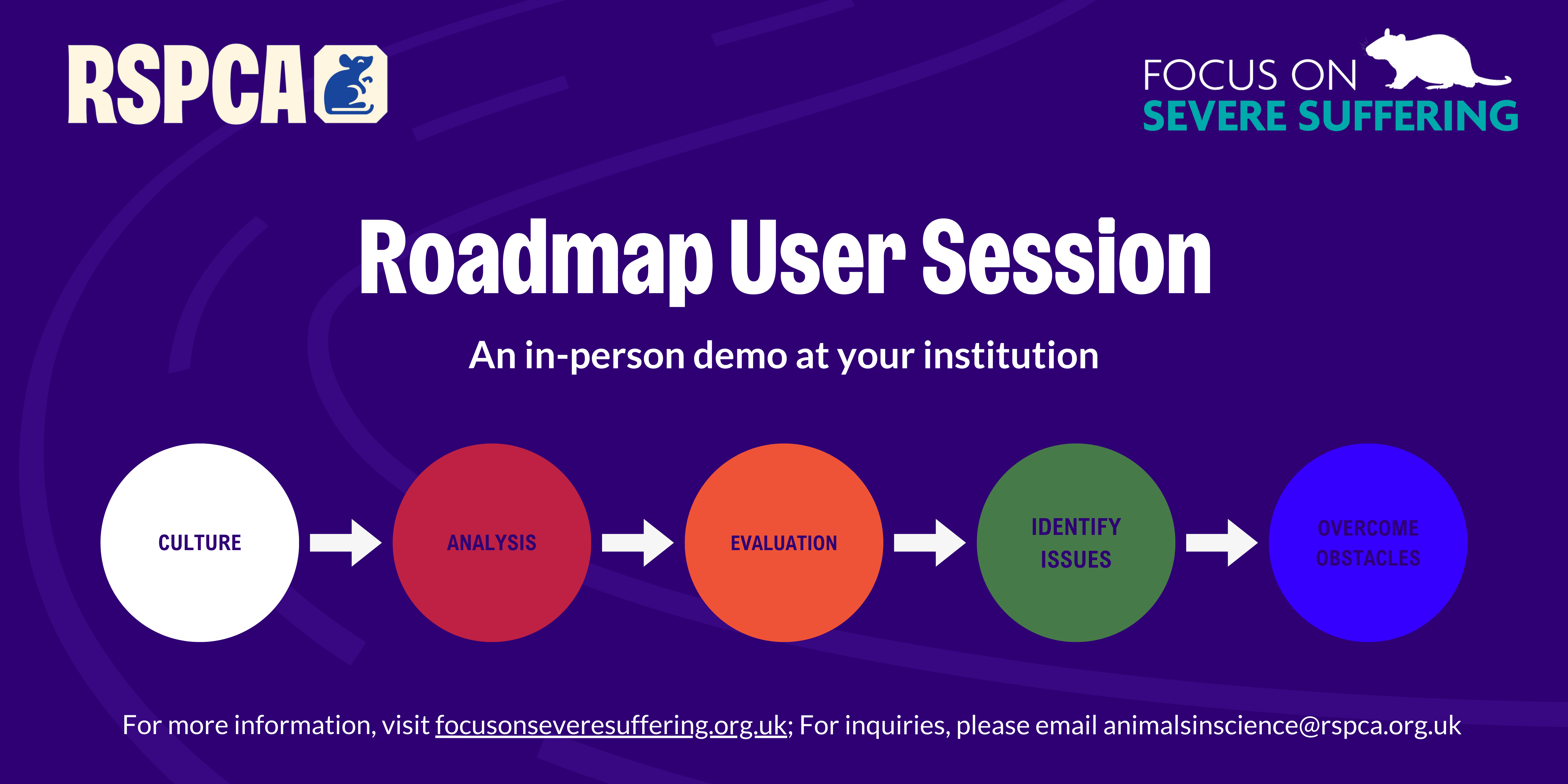Caring, empathetic staff play an essential role in reducing lab animal suffering and improving welfare. However, the emotional toll on staff, including animal technologists, veterinarians and scientists, can be significant – especially when animals suffer severely. Megan LaFollette, from the US 3Rs Collaborative, found that higher severity protocols lead to higher “compassion fatigue”. This state of physical and emotional exhaustion is common among professionals caring for, or using, lab animals and can lead to symptoms like depression, anxiety and even chronic physical ailments.
The RSPCA’s “Focus on Severe Suffering” initiative offers guidance on reducing suffering to improve animal welfare, but as set out above this will also improve human wellbeing. This is critically important, because the goal should be to support, and retain, caring people who empathise well with animals. The “Roadmap” to reducing severe suffering offers guidance on identifying refinements for both procedural and non-procedural effects, applying the theory of marginal gains. This approach is based on many small refinements collectively leading to significant overall improvements, enhancing the welfare of both animals and those who care for them.
The 3Rs Collaborative resource lists several sources of compassion fatigue, providing a very helpful tool to check in on staff wellbeing and to address any factors that may be contributing to emotional burnout, such as severe protocols. This helps to uphold a culture of care, fostering positive outcomes for animals, those working with them and scientific outcomes.
Find more information on the RSPCA’s Roadmap to reduce and avoid severe suffering. If you would like us to visit your institution for a workshop to demonstrate the Roadmap in practice, contact us at animalsinscience@rspca.org.uk.
